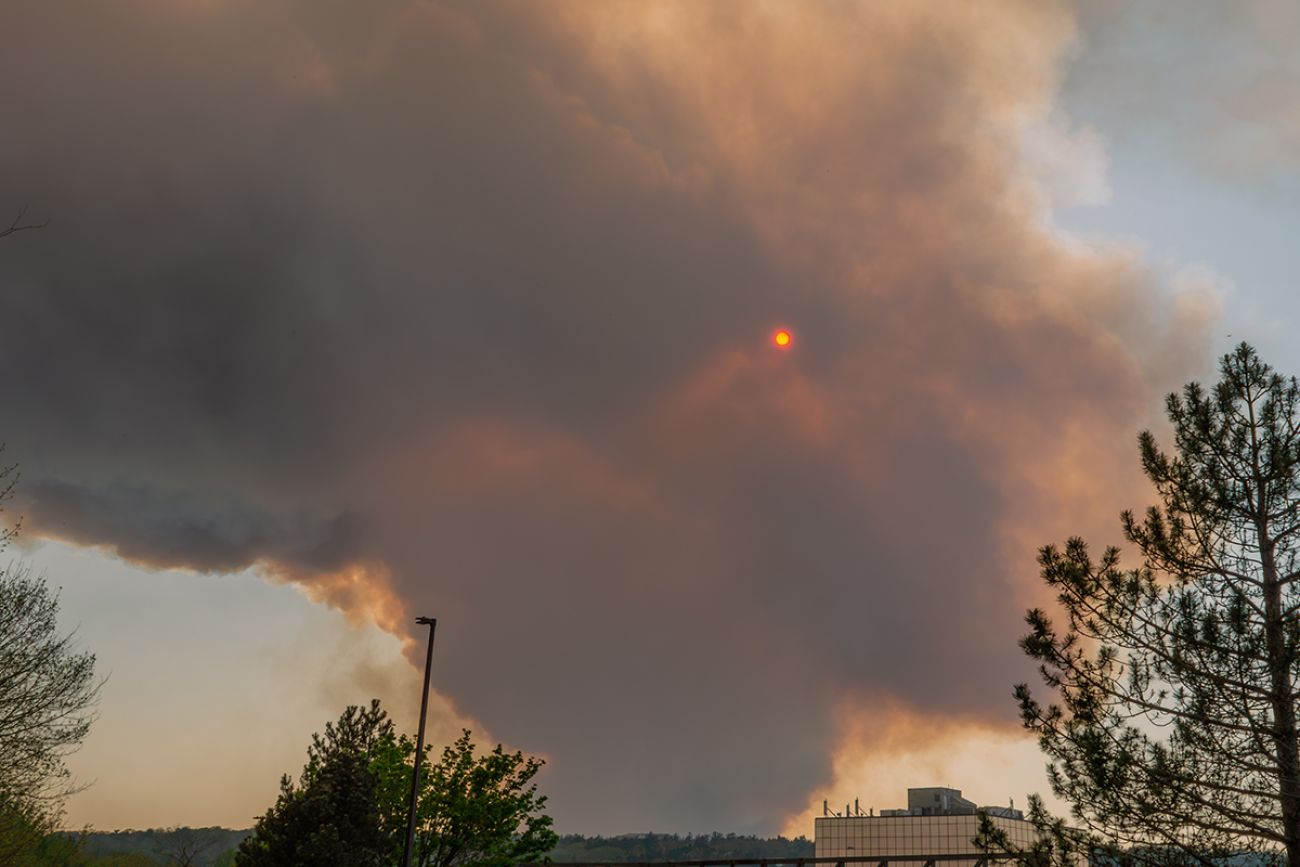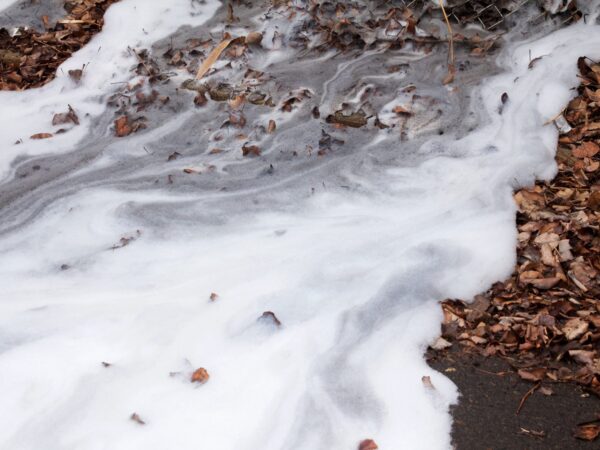
By Janelle D. James, Bridge Michigan
The Great Lakes News Collaborative includes Bridge Michigan; Circle of Blue; Great Lakes Now at Detroit Public Television; and Michigan Radio, Michigan’s NPR News Leader; who work together to bring audiences news and information about the impact of climate change, pollution, and aging infrastructure on the Great Lakes and drinking water. This independent journalism is supported by the Charles Stewart Mott Foundation. Find all the work HERE.
- Wildfire smoke from Canada has triggered an air quality alert in Michigan
- The air quality index in southeast Michigan is considered unhealthy for sensitive groups
- The air quality may continue to get worse as smoke moves through the state
Much of the Lower Peninsula of Michigan was under an air quality alert Monday because of smoke from Canadian wildfires.
The state has been under several air quality alerts over the summer because of continuous wildfires. Smoke has traveled some 500 miles toward southeast Michigan from Canada’s worst fire season in modern history.
The Michigan Department of Environment, Great Lakes, and Energy issued an air quality action day for elevated levels of fine particulate in several counties including Midland, Bay, Saginaw, Tuscola, Sanilac, Lapeer, St. Clair, Lapeer, Livingston, Oakland, Macomb, Washtenaw, Wayne, Lenawee and Monroe counties.
Nationwide, some 70 million people are living under air quality alerts from Vermont to Alabama, according to CNN.
According to AirNow, the Air Quality Index in parts of southeast Michigan is unhealthy for sensitive groups like people with lung disease or asthma, children, older adults and those with other underlying conditions.
Inhaling smoke can cause chest pain, headaches, heart palpitations and eye irritation, according to the Centers for Disease Control and Protection.
The haze is expected to lift later Monday evening. Until then, residents with underlying conditions are advised to stay indoors, close windows, use central air conditioning and wear a mask outside.
Additionally, limiting activities like driving and fueling a vehicle to help reduce air pollution is recommended.
“Smoke from Canadian wildfires continues to affect air quality across the state,” said Dr. Natasha Bagdasarian, chief medical executive for the Michigan Department of Health and Human Services in a news release.
“We are urging Michiganders to check the air quality index regularly to decide if they should be participating in outdoor activities.”
Catch more news at Great Lakes Now:
Michigan under statewide advisory as Canada wildfire smoke hits Midwest
Nessel: $10B PFAS settlement with 3M doesn’t resolve Michigan’s claims
Featured image: Canada wildfire in Nova Scotia. (Shutterstock)




